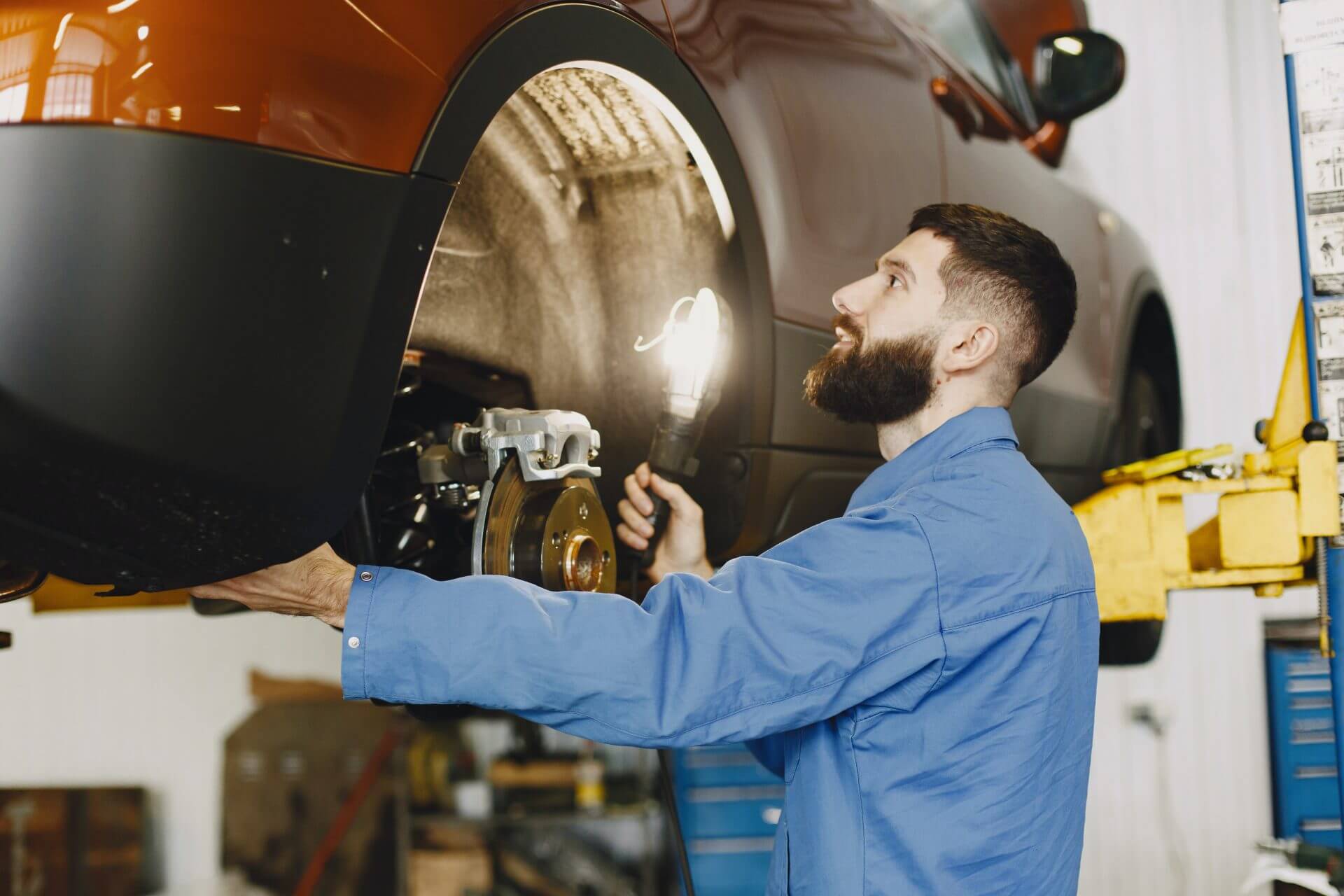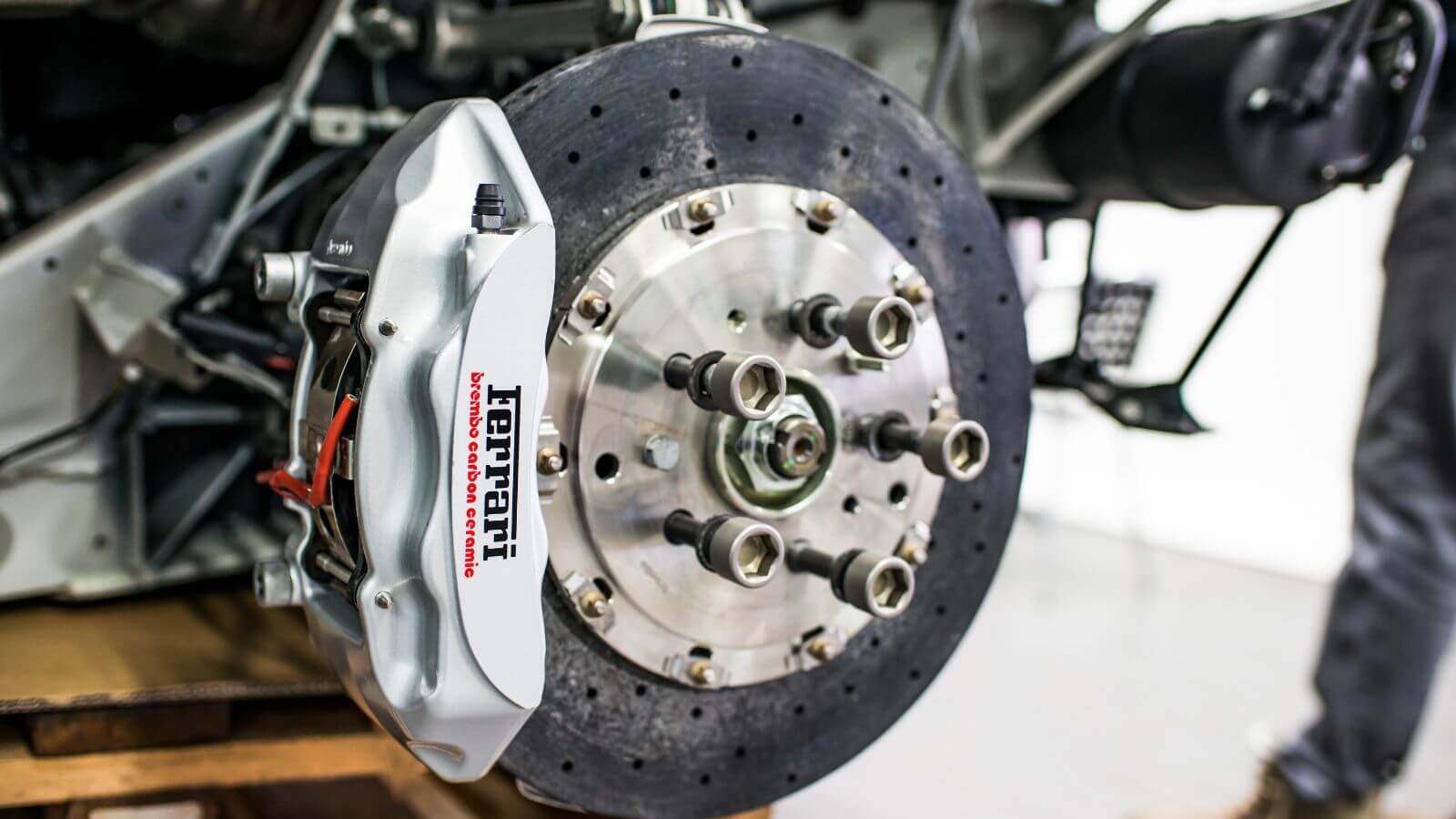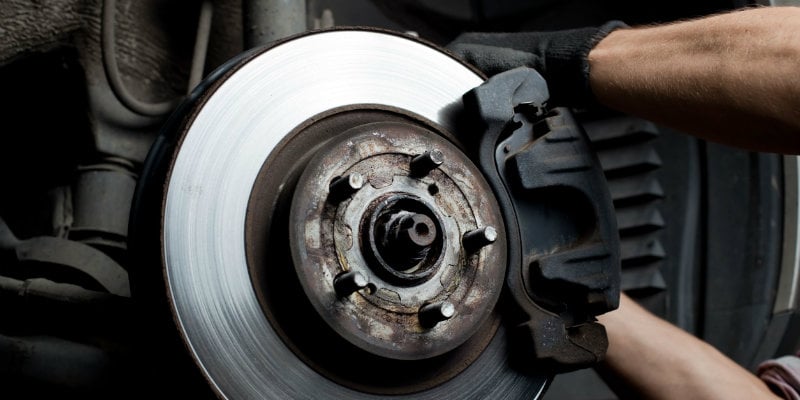Contents
How Much Does A Brake Master Cylinder Replacement Cost in the UK?
Signs your brake master cylinder needs to be replaced
Frequently asked questions about brake master cylinder replacement cost
How Much Does A Brake Master Cylinder Replacement Cost in the UK?
A brake master cylinder is a device that generates hydraulic pressure for the braking system in a motor vehicle. It is usually located near the brake pedal. The master cylinder contains a reservoir of brake fluid, which is pressurised by a piston that is activated by the brake pedal. This hydraulic pressure is transmitted to the brakes at the wheels, where it is used to force the brake pads against the discs or drums. This action slows or stops the vehicle.
Over time, the seals in the cylinder can break down, allowing brake fluid to leak out. When this happens, your brakes will not work as effectively as they should and will need to be replaced.
The average cost of replacing a car brake master cylinder is £245, with prices ranging from £195 and £315. The exact price of the brake master cylinder replacement depends largely on your car and the parts recommended by the manufacturer.
Your location can also be a key factor in determining the price of a brake master cylinder replacement. For example, average hourly labour rates and demand in cities like London is around £50-£100 while in towns with lower demand, the labour rates can range from £35-£50. The type of mechanic, for example, a mobile mechanic vs a dealership garage technician can also affect the total cost of a brake master cylinder replacement.
Average cost of brake master cylinder repair by location
| Location | Average Cost |
|---|---|
| Birmingham | £291 |
| Glasgow | £181 |
| Liverpool | £292 |
| London | £335 |
| Manchester | £328 |
To avoid having car owners overpaying and get a fair price for a brake master cylinder replacement, we use real-time data of thousands of car makes and model data, local labour prices for brake master cylinder repairs and replacements and part prices to provide an instant fair quote. Simply enter your vehicle registration number and postcode to get an instant price for a brake master cylinder replacement for your car.
Average cost of brake master cylinder repair by manufacturer
| Car Make | Average Cost |
|---|---|
| Audi | £533 |
| BMW | £558 |
| Citroen | £287 |
| Ford | £308 |
| Honda | £244 |
| Hyundai | £411 |
| Kia | £332 |
| Land Rover | £247 |
| Mercedes-Benz | £453 |
| Nissan | £512 |
| Peugeot | £301 |
| Renault | £416 |
| Toyota | £314 |
| Vauxhall | £381 |
| Volkswagen | £436 |
Signs your brake master cylinder needs to be replaced
- Spongy or soft brake pedal
- Decrease in overall braking power
- Brake fluid leak
- Brake warning light on dashboard
- Brake pedal goes or sinks to the floor
Your brake pedal feels "spongy" or "soft"
In the event that your brake pedal begins to feel spongy as you step on it, this is a strong automatic indication that your brake master cylinder may be malfunctioning. When the rubber seals get damaged, it will result in a leak inside which results in a “spongy” feel when applying the brakes.
You notice a decrease in braking power
In some cases, the master cylinder can fail just in the front or just in the back. When this happens, there will be a noticeable decline in braking power.
Your brake pedal sinks to the floor when you press it
When the brake master cylinder fails, the brake will sink because there is no longer any hydraulic pressure to push the brake pads against the brake disc. When you brake and notice the brake does not return back to the original position as it should, then this could mean that the brakes are now defective due to a failing brake master cylinder.
You see brake fluid leaking from your car
If you notice a fluid leaking on the wheels (rims and tyres) from the driver’s side, there is a strong possibility that this is brake fluid. You can make sure by checking the brake fluid reservoir under the hood but it’s best to avoid driving before getting it inspected by a mechanic.
Frequently asked questions about brake master cylinder replacement cost
What causes brake master cylinder failure?
Brake master cylinder failure is most commonly caused by a leak in the system, which can be due to a faulty seal or gasket. Other causes of brake master cylinder failure include a build-up of rust or debris in the system, or a problem with the piston or other moving parts.
Can I drive with a failing brake master cylinder?
Driving with a failing brake master cylinder is dangerous. It can cause the brake fluid to leak and the brakes to fail suddenly, which could lead to an accident. If you notice anything unusual with the brakes, never risk driving before consulting or getting it fixed by a professional mechanic.
Why does my brake pedal go to the floor?
If the brake pedal sinks to the floor, it may be due to a leak in the master cylinder. Remember, however, that brake master cylinders can fail without affecting the level of brake fluid so it’s best to get it inspected by a mechanic to pinpoint the source of the issue and fix it.
How long does a brake master cylinder replacement take?
On average, brake master cylinder repair times can range from under 1 hour to 1.5 hours with an average of around 1 hours. The time that the job takes will depend on a number of factors, like your vehicle's make and model, year, as well as other factors. Select your car at the top of this page for information on job time and cost for your vehicle through ClickMechanic.
Can I carry out a brake master cylinder replacement myself?
The braking system is one of the most critical safety components of a car and mechanics are trained to diagnose and carry out repairs by following the required procedures. Brake master cylinder replacement requires advanced auto repair knowledge but special tools and equipment such as brake bleeding kits and flare nut wrenches.
Unless you are a qualified mechanic with the required skills, training and equipment to do the job, we strongly recommend a brake master cylinder repair is only carried out by a professional mechanic. ClickMechanic can help get you a vetted and local mechanic to carry out the work. Just enter your postcode and your car's registration number at the top of this page and select the work needed to get an instant fixed price up front.
What else could be the problem if my brake master cylinder isn’t broken?
If you’re experiencing braking issues and it’s not the brake cylinder that is the issue, then it could be one of the many parts of the braking system including brake fluid contamination, damaged brake lines, brake pads and discs damaged, brake caliper or problems with the ABS. It’s best to get a qualified mechanic to carry out a brake inspection to diagnose the exact cause of the problem.
What happens during a brake master cylinder replacement?
- Mechanic will inspect the brake system.
- Mechanic will check the brake master cylinder to establish if it should be replaced.
- If necessary, the mechanic will replace the brake master cylinder.
- Mechanic will renew the brake fluid.
- Mechanic will bleed the brake system.
- Mechanic will inspect the brake system and will, if deemed safe, do a test drive.


